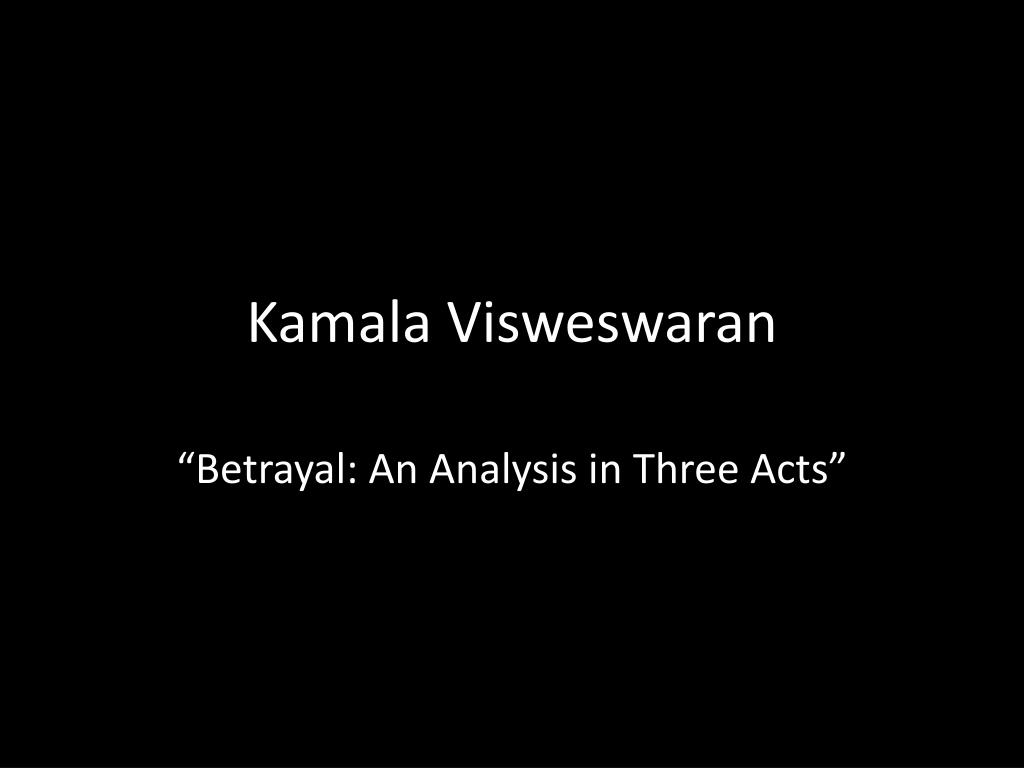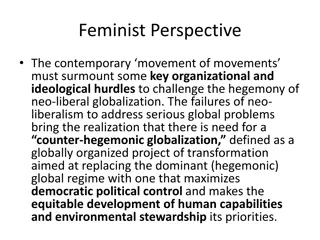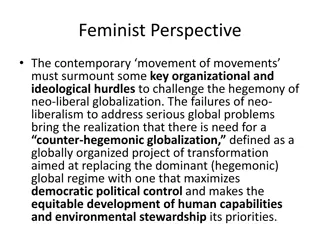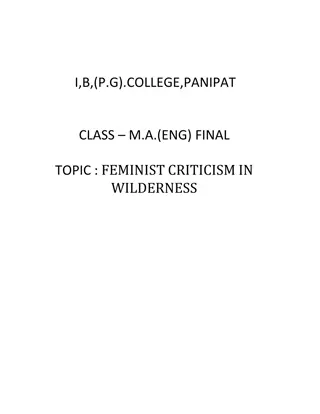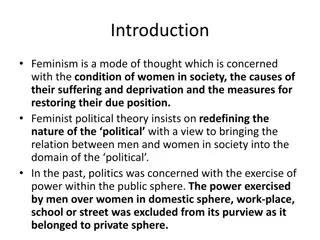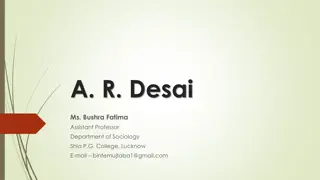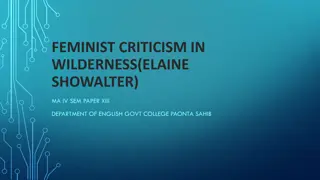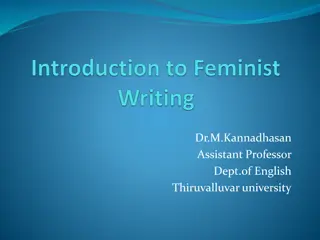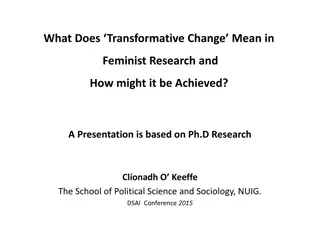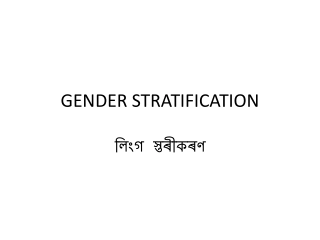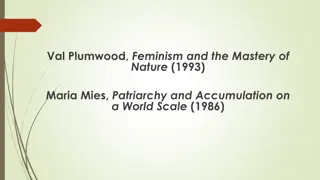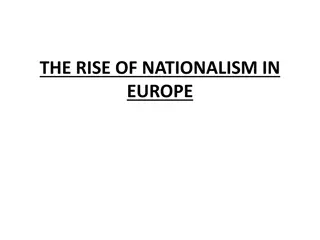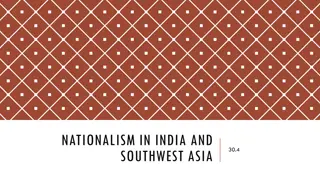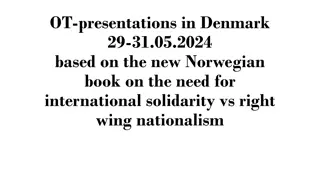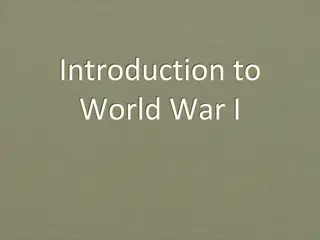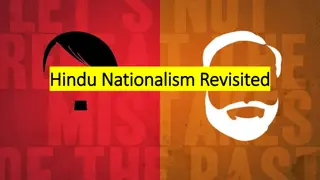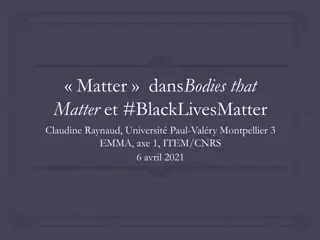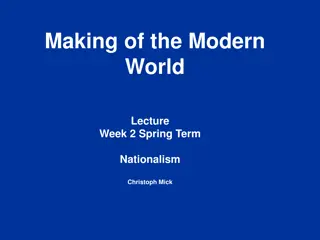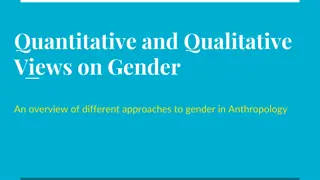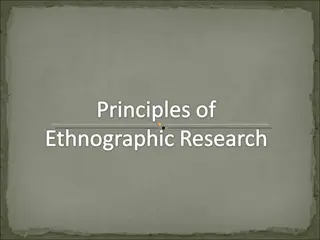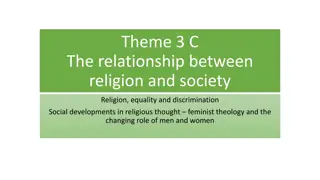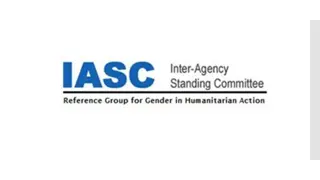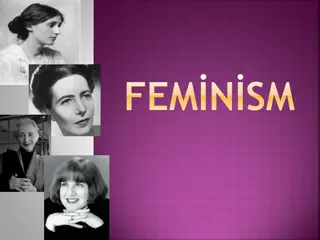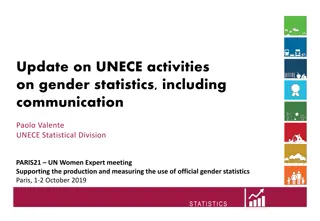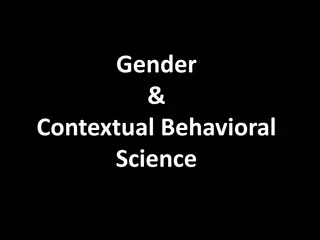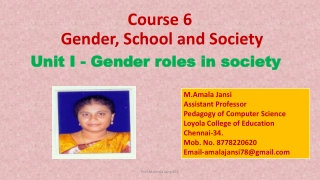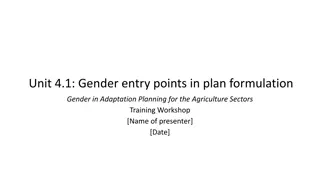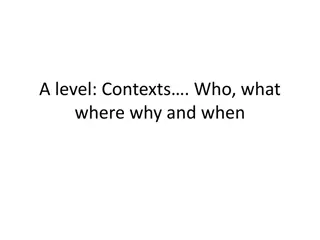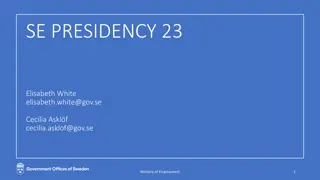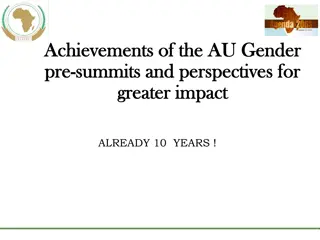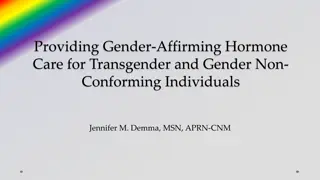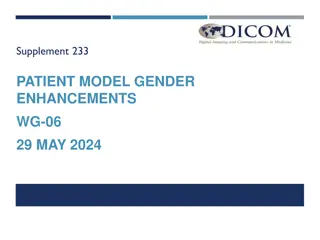Analysis of Gender, Agency, and Nationalism in Feminist Ethnography
Explore the complexities of gender, agency, and Indian nationalism through feminist ethnography, delving into themes of family, silence, self-staging, and shifting identities. The analysis emphasizes the significance of women's agency in shaping their identities and resisting societal norms, highlighting the intersection of class differences within the context of the nation.
Download Presentation

Please find below an Image/Link to download the presentation.
The content on the website is provided AS IS for your information and personal use only. It may not be sold, licensed, or shared on other websites without obtaining consent from the author. Download presentation by click this link. If you encounter any issues during the download, it is possible that the publisher has removed the file from their server.
E N D
Presentation Transcript
Kamala Visweswaran Betrayal: An Analysis in Three Acts
Doing feminist research Assumption of alliance between feminist researcher and her female subjects Production of knowledge is situated and relational A less authoritative account/a partial account not a choice, but a necessity Agency as performance Identity as constructed and staged
Gender and Indian nationalism The family: contained, arena of silence Family as metaphor of the nation The limits of the archive Uma s silence: around her child marriage Don t tell her I told you so Janaki s marriage: a secret Tangam s interception, in English: she only wants to understand (anthropologist as agent of betrayals among women) Self-staging and self-fashioning
Tools of feminist ethnography Shifting identities identities as multiple, contradictory, partial and strategic; conflicting social and linguistic forces Temporality contingency of speech: when is something said Silence: as a marker of women s agency; silence as resistance (Uma and Janaki s refusals to speak of their child marriage; Janaki s refusal to be slotted as spinster or widow) By disavowing identification as child widows, U and J give shape to their agency
Womens agency Based in relation to the non-agent Class differences
